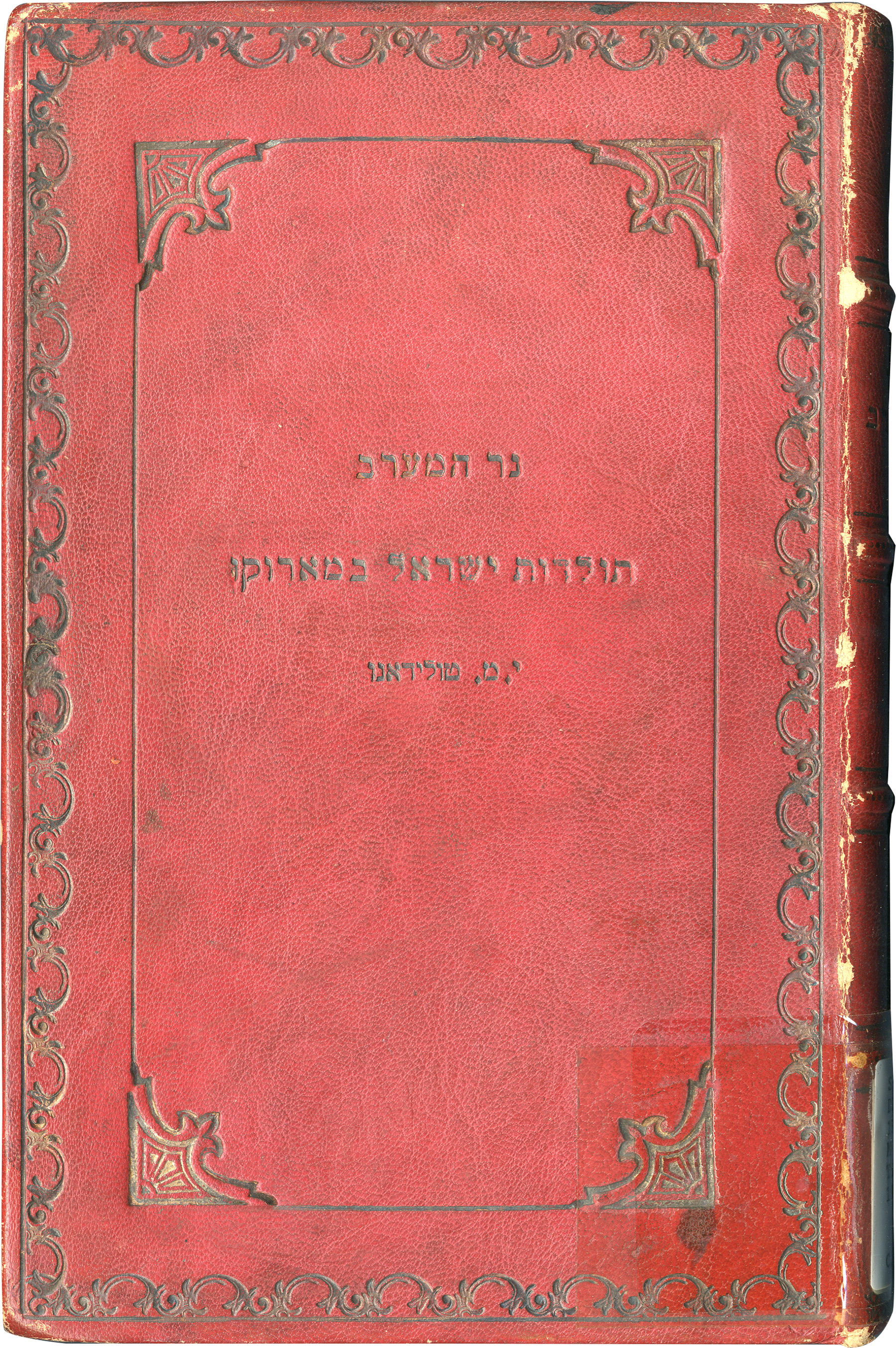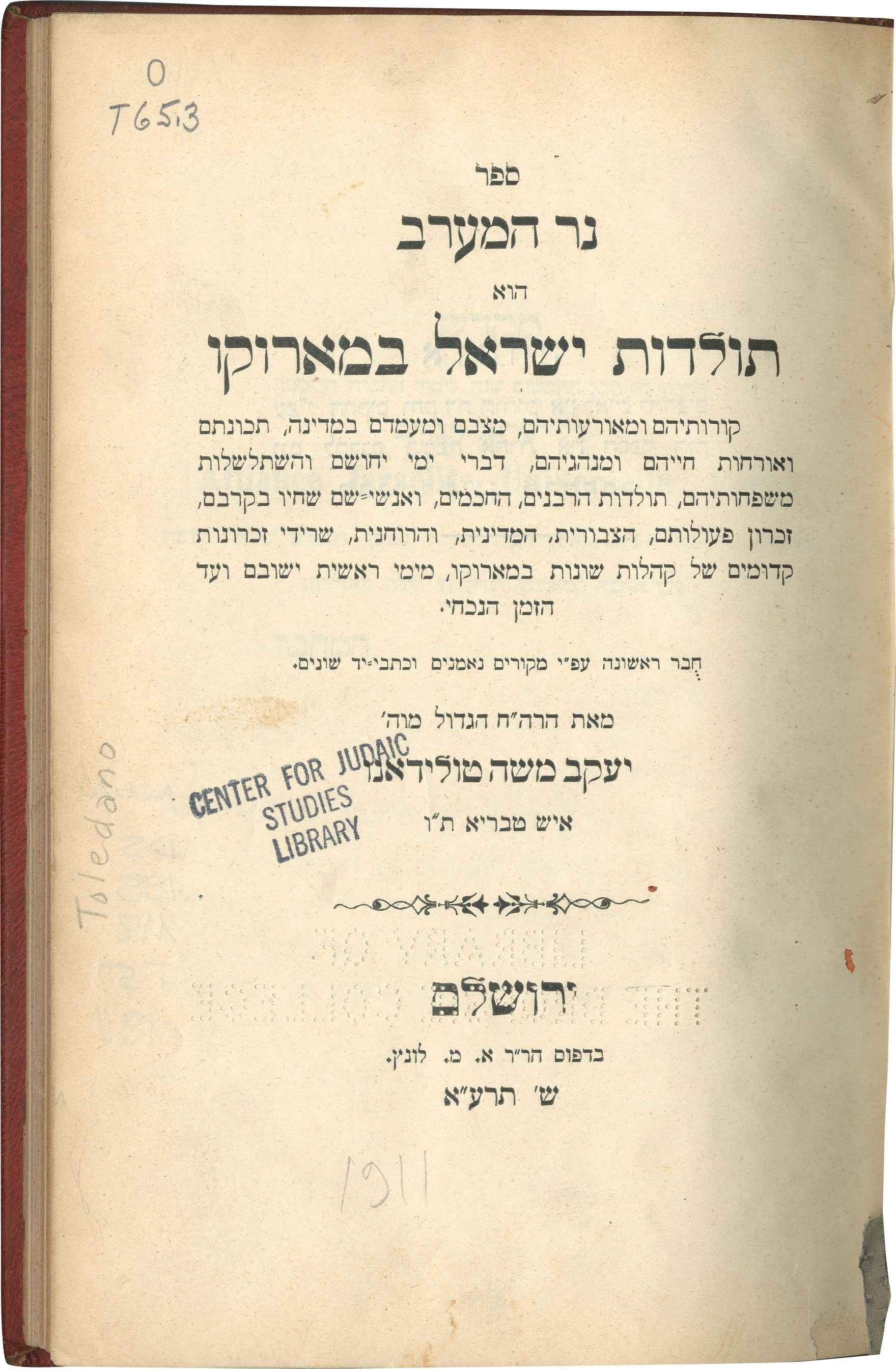A blend of historiography, hagiography, chronicle, and ethnography, the Hebrew book Ner Ha-ma'arav: Toledot Yisra’el be-Maroko ("Light of the West: A History of Jews in Morocco"), issued by Abraham Moses Luntz at his printing press in Jerusalem in 1911, helped to illuminate new ways of thinking historically about Maghribi (North African) Jewish history. The author, Ya’akov Moshe Toledano (1880-1960) was an Ottoman Palestinian-born Moroccan rabbinic scholar, historian, legislator and public figure. In the introduction to his book he refers to himself as a "Man of Tiberius”; he also served as Chief Rabbi in cities like Tangier, Cairo, and Tel Aviv, and was actively engaged with European and North American Jewish intellectual movements of his time.
Toledano’s book mainly offers a primary source for exploring Jewish sociolinguistic identities in late nineteenth-century Morocco, and specifically, how the concept of "Moroccan Jewry” was shaped linguistically. Unlike the book as a whole, the final chapter contains ethnographic observations about "the characteristics of Moroccan Jews, their 'ways of being' and habits." Toledano provides us with a full description of the languages used by Jews in the Maghreb in the early twentieth century: "Their spoken language in north-western Morocco is Spanish with a Portuguese accent and Arabic, and in south Morocco, it is Arabic and Shilhit (Berber). The Arabic they speak to each other is blended with many Spanish as well as Hebrew words. The Moroccan Arabic differs from the Arabic of Eastern Jews in many of its words, expressions, and sayings, and an Eastern Jew would not be able to speak with a Maghribi Jew and hardly understand him. Moroccan Jews have a strange and unique pronunciation in Hebrew. Their accent dramatically differs from the articulation of Turkish Jews, and it is more similar to the dialect of the Jews of Palestine..."
The uniqueness of this description, in which Toledano uses language as a primary taxonomical device for clarifying the place of spoken Hebrew ("Moroccan Jews have a strange and unique pronunciation in Hebrew") lies in the autobiographical stance of the author, whose diasporic-Maghribi formation positioned him both within and outside the community he described.

